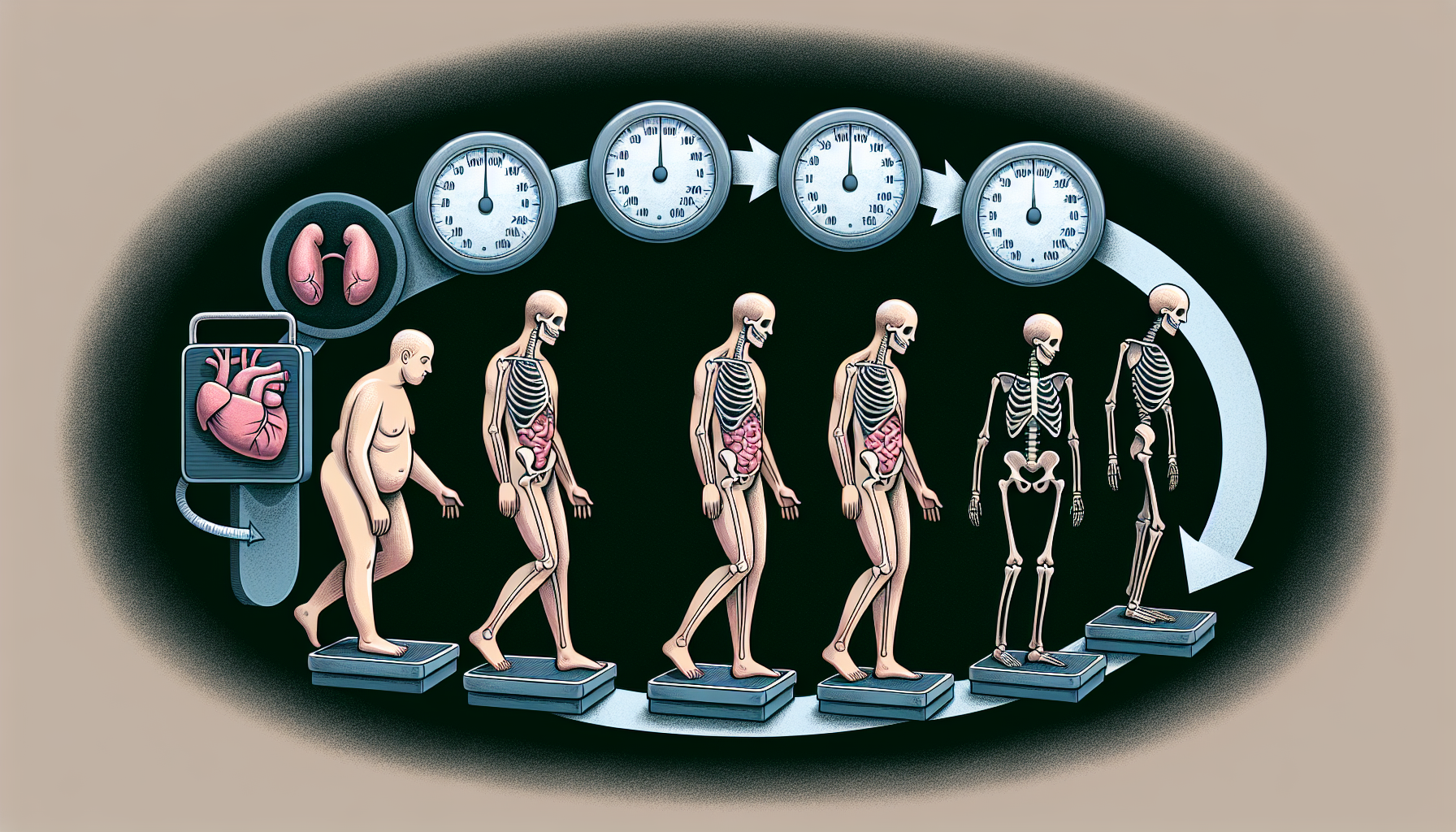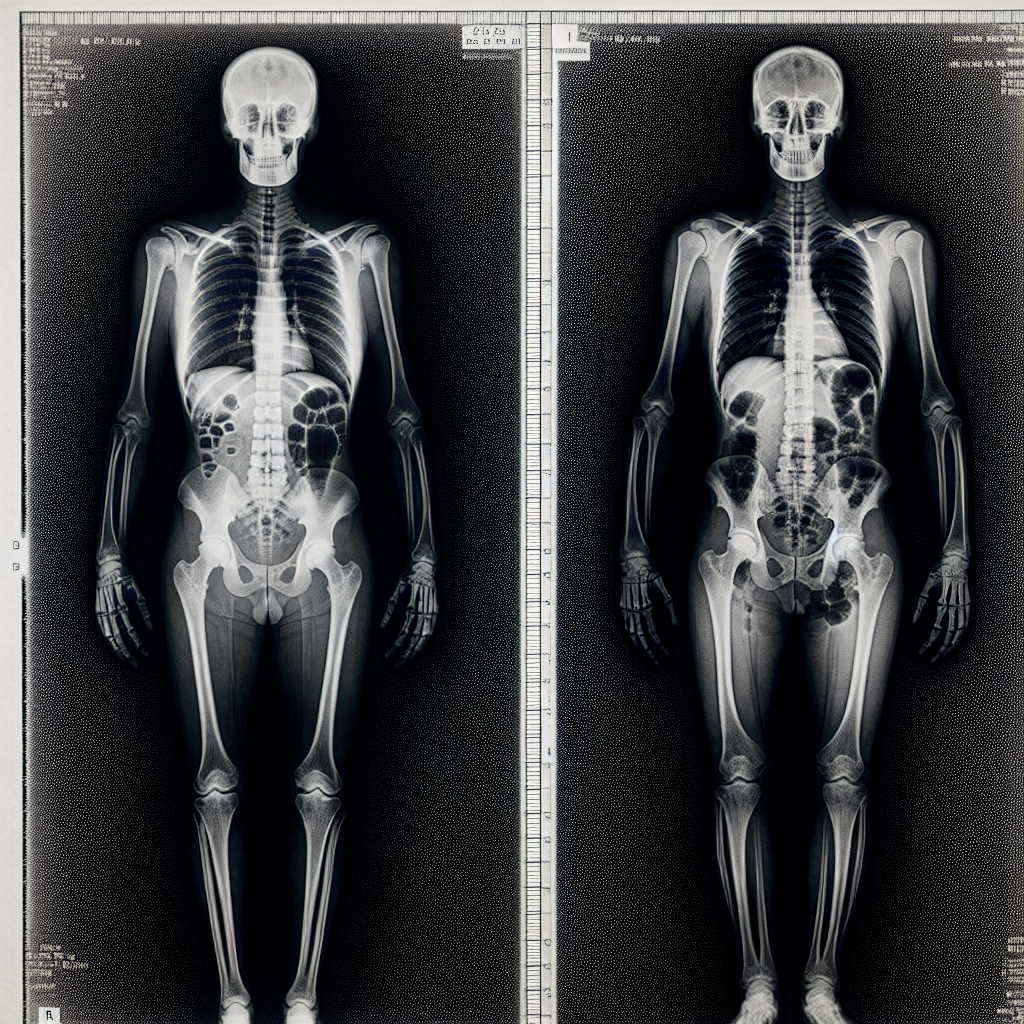Weight cycling, commonly referred to as yo-yo dieting, is a pattern of losing weight and regaining it, which may occur multiple times over a person’s life. While much attention has been given to its psychological and metabolic consequences, the impact of weight cycling on bone density is an area of emerging interest. Bone health is a critical aspect of overall well-being, and understanding the influence of weight fluctuations on bone density can inform both personal health decisions and medical guidance.
Bone Density: A Foundation of Health
Bone density refers to the amount of bone mineral in bone tissue, and it is a crucial indicator of bone strength and health. High bone density is associated with reduced risk of fractures and osteoporosis, a condition characterized by weak and brittle bones. The skeleton is not a static structure; it undergoes continuous remodeling, with old bone being resorbed and new bone being formed. This process is influenced by various factors, including diet, exercise, hormonal changes, and body weight. For further details on bone health and its importance, visit Avix Health on Bone Health.
The Weight-Bone Paradox
Traditionally, body weight has been considered protective against bone loss; the mechanical loading from higher body weight stimulates bone formation and strength. Conversely, weight loss, especially if rapid or significant, can lead to a decrease in bone density. However, weight cycling introduces a complex scenario where the body repeatedly transitions between these states, which may have a unique effect on the bones.
The Impact of Weight Loss on Bones
During weight loss, the body not only loses fat but can also lose bone mass. Studies have shown that diet-induced weight loss, particularly when not accompanied by exercise, can lead to a reduction in bone density. This is partly because fat cells release hormones and cytokines that influence bone remodeling, and changes in these signals during weight loss can affect bone health.
The Impact of Weight Regain on Bones
The assumption might be that regaining weight would reverse any loss in bone density. However, evidence suggests that the bone may not fully recover during weight regain, potentially leading to a net loss of bone density over time.
Weight Cycling: A Risk for Bone Health?
The concern with weight cycling arises from the possibility that bones may lose density during weight loss phases without fully recovering during weight gain phases. Over successive cycles, this could lead to progressively lower bone density and increased risk of osteoporosis and fractures.
Current Research Insights
Recent research has begun to shed light on the impact of weight cycling. Some studies have indicated that repeated cycles of weight loss and regain can lead to lower bone density and a higher risk of bone fractures. These studies suggest that the bone loss experienced during weight loss may not be completely reversible, even when weight is regained.
Factors Influencing the Impact
The impact of weight cycling on bone density is not uniform and can be influenced by several factors:
- Age: Bone density typically peaks in early adulthood and begins to decline as part of the natural aging process. Weight cycling in older adults may be more detrimental to bone health than in younger individuals.
- Gender: Women are generally at a higher risk for osteoporosis, particularly post-menopause, which could make the effects of weight cycling more pronounced.
- Frequency and Severity of Cycles: More frequent and severe cycles of weight loss and gain may pose a greater risk to bone health.
- Nutritional Intake: Adequate intake of calcium and vitamin D is essential for bone health. Nutritional deficiencies during weight cycling can exacerbate bone loss.
Strategies to Mitigate the Impact
Given the potential risks, it is essential to approach weight management with strategies that minimize the impact on bone health:
- Gradual Weight Loss: A slow and steady approach to weight loss, with an emphasis on lifestyle changes that can be maintained, may help preserve bone density.
- Strength Training: Incorporating weight-bearing and muscle-strengthening exercises can help counteract bone loss during weight loss phases.
- Adequate Nutrition: Ensuring sufficient intake of calcium, vitamin D, and other bone-healthy nutrients is vital, particularly during weight loss.
- Medical Supervision: Consulting healthcare providers during weight loss efforts can help tailor a plan that considers bone health.
Enhancing Bone Health Across All Phases
Regardless of weight cycling, promoting bone health should be a constant priority. Several lifestyle and dietary choices can support bone density:
- Regular Physical Activity: Engaging in regular physical activity, particularly weight-bearing and resistance exercises, can help build and maintain bone density.
- Balanced Diet: Consuming a diet rich in calcium, vitamin D, and other nutrients essential for bone health supports bone strength.
- Healthy Lifestyle Choices: Smoking cessation and moderation of alcohol consumption are beneficial for bone health.
For additional insights on optimizing bone density across various life stages and conditions, explore the following resources:
- Strategies for Bone Density Conservation in Postmenopausal Women
- Understanding the Connection Between Metabolic Health and Bone Density
- Advances in Nutraceuticals for Bone Density Improvement
External Resources for Further Exploration
To further understand the complex relationship between weight cycling and bone health, consider exploring these niche resources:
- The Endocrine Society’s Patient Education Resources provides information on how hormonal changes affect bone health.
- The National Osteoporosis Foundation’s Exercise Recommendations offers guidelines on exercises to improve bone strength.
- Dietitians of Canada’s Calcium Calculator can help track calcium intake for bone health.
In conclusion, while weight cycling poses potential risks to bone density, a comprehensive approach that includes maintaining a healthy lifestyle, ensuring proper nutrition, and regular exercise can help mitigate these risks. It’s essential for individuals engaging in weight loss efforts to consider the long-term implications for their bone health and seek guidance from healthcare professionals to develop sustainable weight management strategies.



